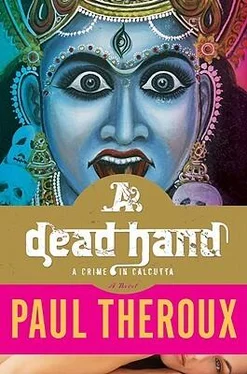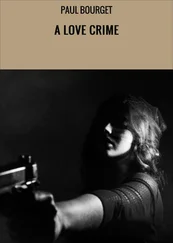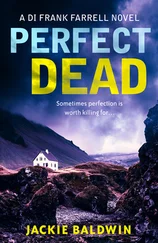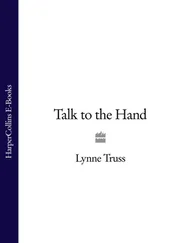"I want to make an impact. I want to do something for these people. I don't want to be another tourist in India."
She spoke in an urgent whisper, not in the valiant and weary way of a philanthropist, boasting of her charity. Her sincere undertone of modesty moved me and filled me with longing.
I had never known any woman like her. Such a woman, I was thinking selfishly, was so truthful, so loyal to her principles, she would never leave me. She would love and nurture me, would be a companion and a caring friend, would look after me with the attention she gave to the lost children. And that same passion could be translated to the bedroom, where generosity mattered most.
"It's always like this."
She was speaking of the traffic, denser as we moved into narrower streets, among older buildings and shops, a neighborhood of pedestrians and auto-rickshaws, a place with the look of a bazaar, not residential except in the broadest sense, for people seemed to be living everywhere, in lean-tos and shanties and on blankets by the side of the road. Many of these people were hawkers, selling beads and relics and garlands of marigolds, or were squatting among piles of fresh flowers, stringing them together. The car was slowing, a steel barrier across the road ahead.
"Blockages," Balraj said.
"We'll walk from here. Deka hobey. "
I was glad to get out of the cramped back seat, and I thought, not for the first time, that Indian drivers had the best seat; the esteemed passengers in the rear had no legroom at all. As I swung the door open (Balraj was attending to Mrs. Unger) I was surrounded by men offering to guide me or to sell me necklaces and holy lockets. Mrs. Unger waved them off and led me, as a mother shepherds a small boy, keeping a few steps ahead, past the fruit sellers and the stalls into a narrow lane.
"Look."
In the distance, an opening between two poor huts, a squalid creek with muddy, littered banks, where some women were scrubbing pots in the filthy water, and others — women and children — were picking through an enormous pile of garbage that had been dumped by the riverside.
"The holy Ganga."
She was still walking with confidence, striding past the men importuning her.
"And there."
The sign of the old, low, pale yellow building was lettered Missionaries of Charity — Mother Teresa's Home for the Sick and Dying Destitutes. With shuttered windows and crumbling sills and cracked stucco, it could have been an old school or a warehouse.
"You can look in."
"Voyeurism," I said, but another sign caught my eye: The greatest aim of human life is to live at peace with God — Mother.
Mrs. Unger saw it too. She said, "Poor Agnes. I wonder if she achieved her aim of finding peace with God. She certainly found peace with millionaires and celebrities. How she loved visiting New York. She went to Palm Beach once and dazzled everyone. Goodness, what did she do with all that money? She certainly didn't spend it on that sad building."
"It does look ramshackle."
"Compare it with my Lodge," Mrs. Unger said.
"I see what you mean."
"You know why she established herself here?" she went on. "So she could be a permanent defiance of the temple." She indicated a parapet and a gilded cupola. "That's the temple."
She set her jaw and continued walking stiffly in her determined way through the milling crowds and the occasional beeping car. Wagons, auto-rickshaws, cows, shoppers, beggars, holy men, and saddhus — she parted the crowd, and I followed as though being carried into my childhood.
Then I took her hand, and instead of consoling fingers I felt a sudden snatching grip, too tight, too hot, too damp, not leading me but pressing for support, her nails digging like a raptor clinging to meat. She wouldn't release me.
"Those people," she said of the mob. She had gone pale. Her features were sharpened by anxiety and she wore a half-smile of fear. "I always think they want to devour me."
She had cut through the crowd without looking left or right. This apparent confidence, which was bravado, making no eye contact, had made her seem imperious.
But her hand told me the truth as she hung on. No one would have guessed that she'd noticed the crowd, though her hand resolved itself into a small panicky animal. It was not until we were past all those jostling people that she slackened her hold and began again to talk calmly.
"You only hear about one side of the little woman," she said. "The saintly side."
"I suppose there was another side."
"With a saint? Always. A ghastly one," Mrs. Unger said in a subdued way, as if in sympathy.
"That building's famous as her hospice, though."
"And it's a glorified morgue," she said, and seemed torn, "because she adored suffering." She held her breath as we passed another staring knot of people. "I wonder who she was when she was alone. I think she had no faith except in herself. Nothing wrong with that, but like most crowd pleasers she didn't know when to stop."
"That seems a little harsh."
"I don't deny her charity. But she spent very little of the millions she was given. She believed that poverty made people better, but it can make them vicious. The Vatican has the money, all those windbags and pedophiles. Little Agnes was an egotist." Mrs. Unger was still gripping my hand, tapping her emotion into it. "I don't fault her for leaving her order of nuns and starting her own band of sisters. She needed to be in charge. It's understandable that she was self-invented — it's always the way with so-called saints. Saints are always on their own journey. Agnes was."
"How do you know?"
"I knew her. I helped her." Mrs. Unger was smiling, passing between a pair of imploring beggars. I glanced away from their cupped hands. "She had doubts, you know. But I forgive her for being an atheist, poor thing. God had pretty much abandoned her. Instead of faith, she had a feral willpower and a love of failure and death and, excuse me" — she waved away a man on a bicycle—"poverty and illness. Absolutely loved them, all these miseries that concentrate a person's mind on salvation. 'Save me,' people screamed at her, and that hopeless scream turned her head. Well, of course it would. Who would not be attentive to people so desperate, especially if you can build a reputation on it."
"How well did you know her?" I asked.
"I sometimes think I'm the only person on earth who truly understood her. She was tiny. Unphysical. She was well aware of the effect her little pickled face and twisted body had on other people. Famous people loved posing with her."
I tried to imagine Mrs. Unger and Mother Teresa side by side, but it seemed a preposterous pairing. I suspected that Mother Teresa would not have been terrified by the mob, as Mrs. Unger obviously was.
"She was preoccupied with death. I have only cared about the living, about children who have their whole life ahead of them," Mrs. Unger said. "She wanted to give people an easy death. Is that an accomplishment? What about giving them sixty years of useful life? But no, that didn't interest Agnes."
I said, "Where are we going?"
But she was too engrossed in this memory of Mother Teresa to answer.
"I can ignore all that, but what I cannot ignore is her hideous posturing and her need to be noticed. Is that saintly? She lived for people to see her. She asked for money, but she believed that wealth was the source of evil. She needed witnesses. There's the difference. I don't want attention. I need no witnesses. I gave her money."
Then she smiled — the smile of ill humor — and waved her hand in the direction of Mother Teresa's home.
"And what's left? Only that obvious anachronism, the house of death."
Ahead of her, a bearded man in a long white shirt and homespun khadi vest recognized her and looked eager.
Читать дальше












